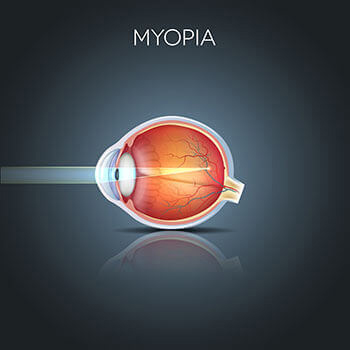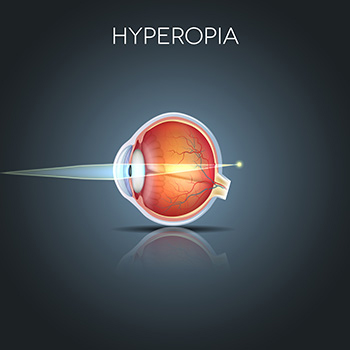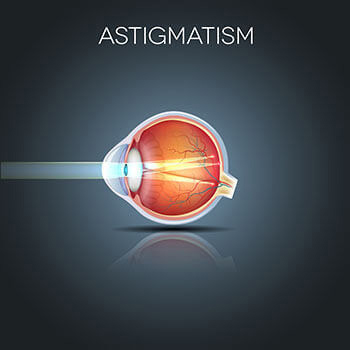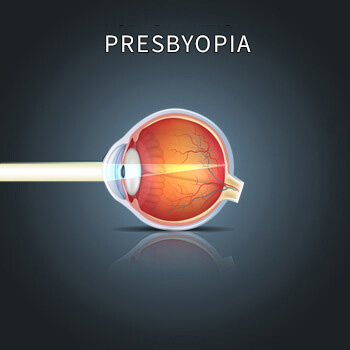What is Refractive Surgery?
Refractive lens surgery, also known as laser or surgical vision correction (depending on the procedure), is a category of treatments that are specifically designed to improve your eyesight and reduce your dependence on glasses and contacts. For most patients, refractive surgery is not needed, but an increasing number of individuals are opting to achieve their best possible vision with one of these treatments. There are several different types of refractive surgeries, all of which are known to be effective with very high rates of success. Our team of board-certified optometrists at Focal Point Vision in San Antonio, TX are pleased to provide these advanced services to improve your visual acuity.
Types of Refractive Surgery
At Focal Point Vision, our office performs the following types of refractive eye procedures:
- LASIK, the most well-known solution for common eye conditions (most notably myopia and hyperopia) to reduce a patient’s dependence on glasses
- PRK, an alternative to LASIK that is similar in nature but requires the cornea to be reshaped
- Refractive lens exchange, a great solution for patients with age-related vision loss (presbyopia)
- Implantable contact lens (ICL), a treatment that completely removes the lens of the eye and replaces it with a new and effective lens to decrease your reliance on glasses
Refractive Surgery FAQ
Is refractive surgery the same thing as LASIK?

Refractive surgery is the actual name of the class of surgery. LASIK, PRK, refractive lens exchange, and implantable contact lens (ICL) are types of refractive surgery to address astigmatism, nearsightedness, and farsightedness. LASIK and PRK use a laser to precisely reshape your cornea, whereas the latter two procedures use implants to correct your vision. A member of our team of experienced doctors can tell you more about refractive surgery and determine which procedure is right for you during your consultation.
Is refractive surgery painful?

Having your cornea reshaped with a laser or implanting a lens into your eye may sound painful, but in reality, it isn’t. At Focal Point Vision, the doctor conducting your surgery will put anesthetic numbing drops in your eyes to reduce any discomfort you may feel. Most patients only feel a slight pressure during their procedure.
Is refractive surgery safe?

When people ask about the safety of refractive surgery, they most commonly want to know about the safety of a LASIK procedure. While any type of procedure has inherent risks, LASIK is generally considered extremely safe with a minimal complication rate. LASIK is one of the safest elective surgical procedures available today with complications in less than 1% of successful procedures.
Am I A Candidate For Refractive Surgery?
More and more people are taking advantage of the dramatic improvements in vision that refractive surgery offers. Able to improve the vision of a wide variety of patients, the ideal candidates for refractive surgery are people who:
- Have myopia (nearsightedness) or hyperopia (farsightedness)
- Are experiencing age-related vision loss (presbyopia)
- Are in generally good health
- Are over the age of 18
- Have a stable vision prescription
- Don’t have dry eye
- Have no eye injuries or infections in the past year
What Are The Benefits Of Refractive Surgery?
Refractive surgery at Focal Point Vision can help you achieve clearer vision with a host of great benefits, like:
- Offers multiple treatment options
- Can dramatically improve vision
- Corrects myopia, hyperopia, and presbyopia
- Reduces reliance on glasses and contact lenses
- Most are easy outpatient procedures
- Safe and highly effective
- Recovery times are short

Refractive Surgery Can Correct The Following Vision Conditions

Myopia
Myopia, or nearsightedness, is a condition usually resulting from excessive length of the eye and steepness of the cornea. This abnormal shape causes the light to be focused in front of the retina, which makes objects and images seem fuzzy from a distance.
Almost all levels of nearsightedness can be remedied through a variety of surgical procedures.

Hyperopia
Hyperopia, or farsightedness, is usually caused by a slightly short eye and flat cornea. When light passes through the eye, the mispositioning of the eye and cornea lead to the light being focused behind the retina. When this happens, nearby objects can appear to be out of focus.
Several options are available to correct farsightedness, including LASIK, Refractive Lens Exchange, and Contact Lenses.

Astigmatism
Astigmatism is the uneven steepening of the cornea, which results in an unbalanced focusing of the eyeball. This condition is incredibly common and can lead to blurriness from any distance.
Glasses, contact lenses, corneal relaxing incisions, laser vision correction, and special implant lenses are some of the available corrections for astigmatism.

Presbyopia
Presbyopia is often unapparent for a majority of those affected until approximately the age of 45. Usually, in our youth, our eyes are easily able to focus on objects of all distances. However as we get older the lenses of our eyes lose some of that ability.
While the cause of this condition is not entirely known, the general belief is that as the lens and its surroundings age, they are eventually unable to elongate the lens to focus on objects and images at close distances.
This can usually be rectified by way of reading glasses, monovision and multifocal contact lenses, presbyopia-correcting implant lenses, monovision laser vision correction.
Your Best Vision Is In Sight!
Even though it isn’t always needed, refractive surgery can dramatically improve the lives of people who want it by reducing their dependence on glasses and allow them to live full lives without worrying about losing a contact. To determine if you’re a candidate, one of our eye doctors at Focal Point Vision will assess your eyes and learn about your overall health. If you want to learn more about refractive surgery and the procedures we perform, get in touch with our office in San Antonio, TX, and schedule your appointment.
